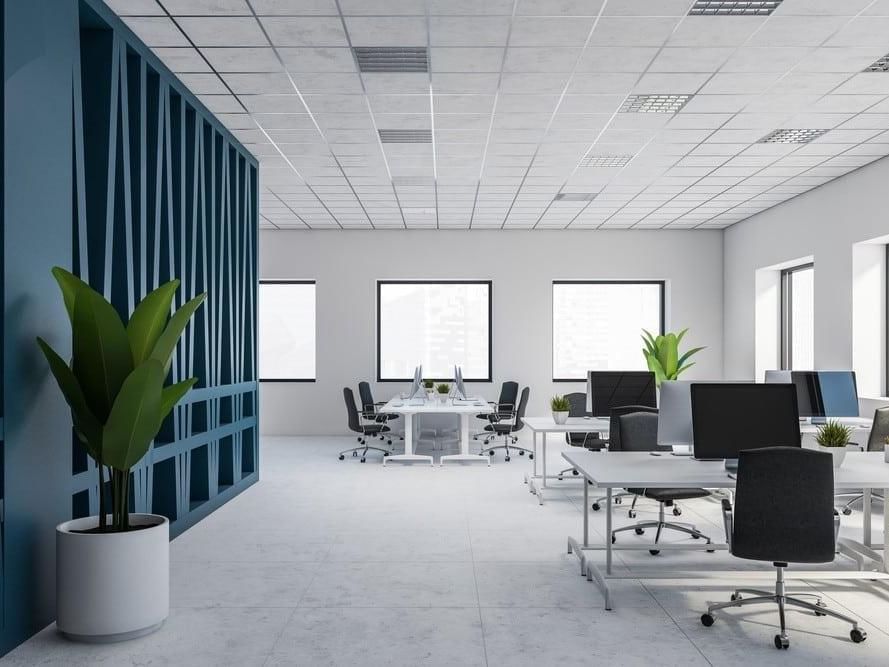
Once you've found the right premises for your business, it can be daunting to sign a professional lease. Especially since this financial commitment can cost your company a lot of money. Fortunately, we're going to take you through the different types of commercial leases one by one, to help you choose the one that best suits your business and your situation!
What are the different types of commercial leases?
The 3-6-9 lease (most common in France)
The 3-6-9 lease is the most common commercial lease in France. It covers the use of premises for professional or commercial purposes. Governed by the Pinel law, this type of commercial lease lasts for a minimum of 9 years. Every 3 years, it expires and is automatically renewed for a further three-year period.
After 3, 6 or 9 years, the tenant can terminate the lease for no particular reason.
The owner, on the other hand, may refuse to renew a 3-6-9 lease for 3 reasons:
-
to set up offices for his own business ;
-
to carry out major works (e.g. energy renovation);
-
if the tenant has failed to meet his contractual obligations.
The derogatory lease
The derogatory lease allows a tenant to occupy premises dedicated to the operation of his business for a maximum period of 3 years (as stipulated in article L. 145-5 of the French Commercial Code).
Here are the 3 rules for concluding a short-term lease:
-
the lease must be written in black and white;
-
both parties must clearly express their wish to set aside the status of commercial leases;
-
the total duration of the lease or successive leases must not exceed 3 years.
Precarious occupancy agreement
Unlike the derogatory lease, the precarious occupancy agreement is not subject to any duration conditions.
This type of agreement allows the parties to derogate from the commercial lease regime.
To set up such an agreement, the lessor grants an occupancy right to a tenant in return for financial compensation. For a precarious occupancy agreement to be valid, the parties must prove "exceptional circumstances beyond the control of the parties".
In other words, real and objective precariousness must be proven. An example would be the occupation of a house slated for demolition. For a precarious lease to be considered as such, the tenant must pay a fee to the lessor. This fee must be lower than the market price of the property at the time the contract is signed.
Professional leases
Professional leases were invented to enable self-employed professionals (e.g. nurses, lawyers, architects, etc.) to rent premises on which to carry out their activities.
Professional leases are therefore not suitable for commercial, craft, industrial or agricultural activities. Only self-employed professionals can sign these types of leases. The minimum term is 6 years.
Commercial construction leases
Construction leases have existed since the law of December 16, 1964. Any private individual or legal entity able to sell or transfer ownership of a property can sign this lease.
A special feature of this type of lease is that the lessee undertakes to build, renovate (rehabilitation lease) or improve buildings on the owner's land. The minimum term is 12 years, and may include an early termination clause.
Construction leases are governed by articles L. 251-1 et seq. of the French Construction and Housing Code (Code de la Construction et de l'Habitation).
What clauses should be included in a commercial lease?
Lease term
As we have seen, the different types of commercial leases all have a specific lease term. If you're looking for a long-term commitment, you can sign a 3-6-9 lease for a minimum of 9 years.
For a more temporary solution, we recommend a derogatory lease. This allows you to commit for 6 months or a year if you wish. You can then sign a new derogatory lease for one year following the first. The only limit to the derogatory lease is that for the same property, the total duration cannot exceed 3 years.
Rent and service charges
Negotiated when the commercial lease is signed, the amount of the rent and the breakdown of charges must appear on the lease contract. You can be as imaginative as you like when defining rent and service charges.
For example, you could include a revenue clause, with a variable rent system indexed to the tenant's sales and performance.
In simple terms, the rent will be calculated on the basis of the tenant's sales. In the event of a fall, the rent will fall, and in the event of an increase, the rent will rise. The "recette" clause is very common in shopping center leases.
When it comes to apportioning charges, you'll need to make sure you comply with the provisions of the Pinel law.
The destination of the commercial lease
The destination of a commercial lease is the most important clause in a commercial rental contract. The "destination clause" simply refers to the activity carried out on the premises. This must be possible, both legally and materially.
For example, to open a restaurant on the premises, it must be possible to install a proper extraction system in the kitchen. In addition, the activity must not be prohibited by condominium or local planning regulations.
Inventory of fixtures
The inventory of fixtures describes the appearance of the commercial premises when the lessor enters the premises. In the case of furnished leases, this document lists and describes the condition of all objects and furniture on the premises. This may include desks, computers, chairs, lockers, meeting room equipment, etc.
The purpose of this document is to prove that the Lea is in good or excellent condition when it is rented out. The inventory of fixtures must be included in the commercial lease, so that both parties can confirm the condition of the premises by signing the document.
How to choose the right commercial lease?
Choosing the right commercial lease is an important step in domiciling your company or business.
To begin with, you'll need to define the lease term.
Do you plan to stay at this location for more or less than 3 years?
If you want to stay for less than a year, you'll need to opt for a flexible lease such as a derogatory lease or a precarious occupancy agreement.
To stay for a longer period, we recommend the classic commercial lease: the 3-6-9 lease, or the professional lease if you're in the liberal professions.
If, like Valérie Damidot, you love to do construction work (and it's even your profession!), you can opt for a construction lease and get involved in building a property on bare land.
To help you choose among the different types of commercial leases, here are a few points to consider:
-
current regulations (all lease clauses must comply with the law) ;
-
lease terms (lease duration, rent and lease distribution are negotiable elements);
-
Lea constraints (each Lea may have its own set of constraints, such as accessibility standards, town-planning rules, activity restrictions, etc.);
-
renewal terms (how is the contract renewed once it has expired?).
The different types of commercial leases: a recap
Now that you know the different types of commercial leases, all that's left is to find the ideal premises for your business. It needs to be large enough to accommodate all your employees, built to PMR accessibility standards and strategically located.
For more information on this subject, we recommend our article: "How to find office space for your employees".
And for a personalized search from A to Z, our team is at your service.
-
How do companies assert their identity in a shared space?

12/05/2025 How do companies assert their identity in a shared space?
Coworking spaces are places designed for the collective: so how can a company assert its own identity? While flexible space brands strive to be recognizable and identifiable among a thousand, they also enable their occupants to make their own workspaces their own.
-
Coworking: how to create, open and run a shared workplace?

03/05/2025 Coworking: how to create, open and run a shared workplace?
Coworking spaces are springing up all over France. How do they emerge today, and what room is left for new entrants to the flexible workspace market?
-
Coworking: how to prepare employees for flexible working?

03/04/2025 Coworking: how to prepare employees for flexible working?
As coworking spaces win over more and more employees, how can companies support this shift towards greater flexibility, without losing cohesion or performance? Here are a few tips!